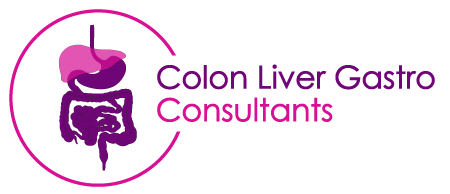As a gastroenterologist, one of the hardest parts of my job is telling patients they have cancer. That’s why it fills me with hope whenever I learn about new research or treatments that could lessen or even eliminate my patients’ suffering and help them live longer, cancer-free lives. Advances in medical treatments bring not only hope but also renewed energy to our daily work. Recently, there’s been a breakthrough in the treatment of bowel cancer that could be particularly promising for patients with certain genetic traits. This article will introduce you to a relatively new drug that doesn’t just shrink tumors—it could significantly increase the chances of completely curing some types of bowel cancer, potentially making surgery unnecessary. We’ll look at how this new treatment works and discuss its potential to change lives and bring new hope to those facing this challenging disease.
Immunotherapy is a relatively new but revolutionary approach in cancer treatment, harnessing the body’s own immune system to fight the disease. By enhancing or restoring the immune system’s ability to detect and destroy cancer cells, immunotherapy offers a powerful and targeted alternative to traditional treatments like chemotherapy and radiation, often with fewer side effects. This innovative therapy is transforming the landscape of cancer care, providing new hope for patients with various types of malignancies.
Recent research seems to suggest that an immunotherapy drug, commercially known as Keytruda (pembrolizumab) , has the potential to be a gamechanger for its ability to significantly improve the chances of curing certain types of bowel cancer, sometimes even replacing the need for surgery.
Cancer cells are notorious for their ability to camouflaging themselves effectively to avoid detection by the immune system. This drug, which targets and blocks a specific protein on the surface of immune cells, allows them to effectively seek out and destroy cancer cells. Clinical trials have shown that administering this drug before surgery, instead of the conventional chemotherapy, leads to a substantial increase in the number of patients declared cancer-free. The results of the trial were presented at the annual meeting of the American Society of Clinical Oncology (ASCO).
The study, involving several leading institutions, found that immunotherapy prior to surgery could revolutionize the treatment for patients with a specific genetic makeup of bowel cancer. Not only does this approach improve outcomes, but it also spares patients from the often severe side effects of chemotherapy. If all goes well, in the future, immunotherapy may even replace the need for surgery.
Bowel cancer is the second leading cause of cancer-related deaths worldwide, with more than 1.9 million new cases and over 900,000 deaths each year, according to the World Health Organization.
The trial, funded by Merck Sharp and Dohme and sponsored by University College London, recruited 32 patients with stage two or three bowel cancer and a particular genetic profile from five hospitals in the UK. About 15% of patients with stage two or three bowel cancer have this specific genetic makeup. By the way, the development of treatments sometimes starts with sub-populations that have specific genetic traits because it allows researchers to test the efficacy and safety of a treatment in a more controlled and targeted manner. For example, in the case of Hepatitis C (a precursor to liver cancer in some people), initial treatments were developed to target specific viral genotypes. This approach allowed researchers to refine the treatments, understand their effectiveness, and then extend their use to a broader population As those who follow blogs on this subject know, this approach was crucial in by and large conquering the Hepatitis C virus irrespective of its genetic make-up.
Patients in this study received the new drug for nine weeks before their surgery, rather than undergoing the usual chemotherapy and surgery right away. They were then regularly checked by doctors. The results were very promising: after receiving the drug, 59% of patients had no signs of cancer, and if there was any cancer left, it was removed during their surgery. Impressively, all of the patients were cancer-free after this treatment approach. This is a big improvement over the usual treatment, where less than 5% of patients with this genetic type of cancer show no signs of cancer after just surgery and chemotherapy.
In the next few years, doctors will continue to monitor these patients to see how long they stay cancer-free and to check if the cancer comes back. This new treatment method also meant that patients didn’t need chemotherapy after their surgery, which helped them avoid some tough side effects.
The doctor leading the study said that the results show this drug is a safe and very effective way to improve the chances of completely curing high-risk bowel cancers at an early stage. They noted that more time and research are needed to make sure these results hold up over the long term. When its potential is fully realized, immunotherapy holds the potential to make tumors disappear before surgery. If you melt the cancer away before surgery you normally triple survival chances. If patients have a complete response to drugs like pembrolizumab it can triple one’s chance of survival.
Another researcher involved in the study mentioned that more studies are needed before this drug can be used as a standard treatment, but the early results are encouraging. If future studies show similar success, this drug could become a common treatment option in the next few years.

